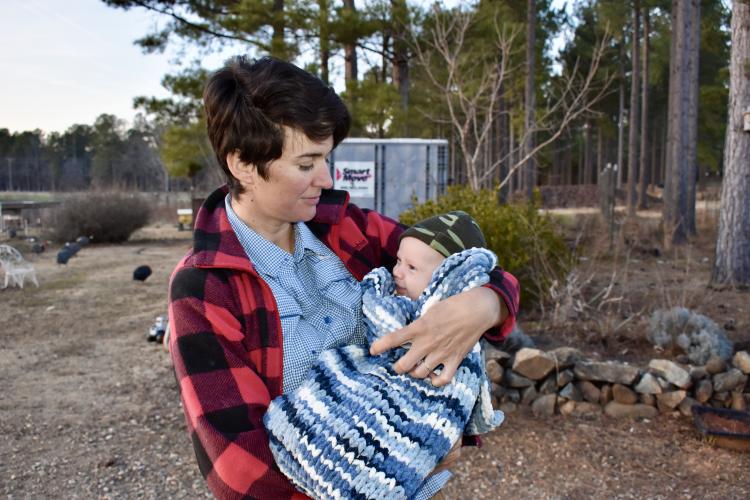Produce farming is hard.
It’s a year-round industry, filled with long hours, intensive labor, and fruits and vegetables that go out of season at a moment’s notice. Even when farmers can produce a bountiful crop, it’s impossible to sell everything.
Inevitably, goods are left over. What happens to unsold produce?
In the past, that answer has been simple — waste. Over 800,000 tons of food are sent to landfills in Georgia each year, according to the Environmental Protection Division of Georgia.
Farmers around Oglethorpe County, like Laura Pallas, are looking to change that.
Pallas earned a doctorate in food science from the University of Georgia, and since 2017, she’s used that knowledge to help run Buffalo Creek Berry Farm in Lexington. Pallas estimated Buffalo Creek sells three-quarters of its production in a good year, but not every year goes according to plan.
She said they use the leftovers for several things, such as feeding her family or making syrups, vinegars and jams.
“For us, it’s about, ‘How do we survive on the farm, being farmers?’ ” Pallas said. “It’s hard doing the fresh market. You really need an outlet to be able to move your seconds, or creating something with them.”
Not all farmers are so efficient with their leftovers, Pallas said. She said there are many barriers to efficient use of produce waste, with knowledge being the primary obstacle.
“Pretty much any farmer is going to have some sort of waste,” Pallas said. “The challenge is being able to have the knowledge — and then, of course, the time, because we always seem short on time as farmers — to take a product that won’t sell fresh and turn it into income.”
Pallas is also part of a UGA research grant about composting. She will interview people in several markets to learn what farmers do with their waste.
Sarah Hovater of the Marigold Market in Winterville will participate in the study.
Marigold Market features a collection of vendors from surrounding communities, including Oglethorpe County. Since starting as a market manager in February, Hovater said she has helped facilitate a special system for offloading unsold goods.
“Whatever produce is left at our market, the city of Winterville has given us a stipend that we’re able to use to purchase what’s left over,” Hovater said. “Then, we donate it to some of the food-insecure neighborhoods, and we have a couple of community partners who actually do the distribution for us.”
Though Hovater has several duties, she said the waste-reduction program was a specific priority for her — to reduce food insecurity, eliminate waste and help her vendors at the same time.
Not every farmer has a government subsidy to help them reduce waste, though. Kendall Strickland finds other ways to exchange unsold goods.
Strickland grows tomatoes, potatoes, onions, cabbage, fruits, pecans and more as the proprietor of Strickland Pride Produce, though he isn’t able to sell everything.
Strickland said he’s sold a portion of his leftovers to Sweet Olive Farm, an animal rescue in Winterville, for the past year. Strickland said his contributions go toward feeding the farm’s collection of rescued pigs, among the other animals on the property.
Not all of his leftovers go to the pigs, though.
Strickland also mentioned canning unsold goods — taking leftover produce and turning it into jams, frozen or dried goods — as an option for farmers looking to reduce waste.
“It’s just another way for me to eliminate total waste,” he said. “That’s where that goes to, mainly peppers, tomatoes, things like that. My canning lady takes that and makes all types of cans and things out of it, and I sell it.”

